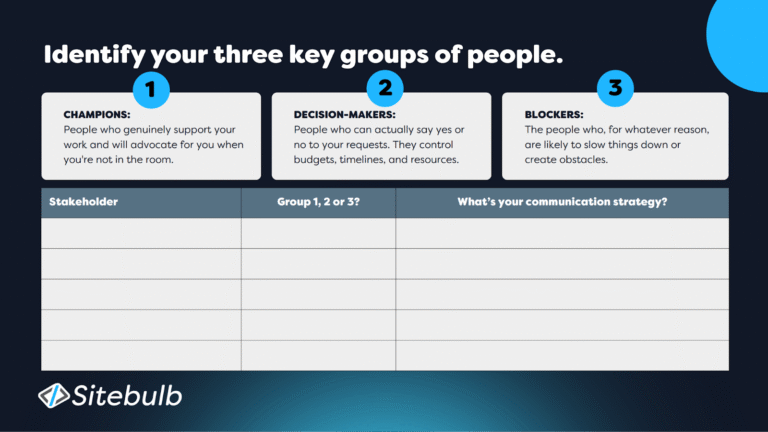The way we do keyword research has leveled up. If your strategy isn’t bringing fresh blood into your pipeline, there’s a good chance you’re not targeting keywords that actually attract buyers. You might be getting traffic, sure, but if it’s the wrong traffic, it’s basically a dead-end street.
The game has changed. Search engines are shifting, AI is rewriting how content is discovered, and users are searching in new ways. This is happening across every corner of the internet and marketing. Keyword research remains the backbone of SEO and PPC, but the tools you rely on now have to be smarter, faster, and far more precise than they were two years ago.
In this blog, we’ll cover:
- What keyword research is in the simplest terms.
- Key features to look for in these tools.
- 20 keyword research tools worth trying in 2025/26.
- How to pick the right one (and avoid rookie mistakes) so your strategy actually converts.
Let’s take it from square one.
What is Keyword Research?
Keyword research is basically figuring out what your audience is typing into search engines and then using that intel to create content they’ll actually find. At its core, it’s about connecting the dots between what people want and what you offer. Think of it like eavesdropping on thousands of potential customers. You’re not just looking for any words; you’re hunting for the ones that match search intent, you are hearing the alternatives and “maybe also’s”.
When done right, keyword research answers three big questions:
- What are people searching for? (Topics, products, questions)
- How are they searching for it? (Exact words, phrasing, slang, and even typos)
- Is it worth targeting? (Volume, competition, and whether it can actually convert)
Without it, your SEO or PPC strategy is just throwing some words together and hoping it’s what your target audience is looking for. With it, you can shape your content, ads, and product positioning so you’re showing up exactly where your audience is already looking.
Sounds big, right? Well, it is. Now, it is time to see what might help us tame the beast.
Key Features to Look For in a Keyword Research Tool
You want a tool that does so much for you. Because if the tool itself is free, you are still expecting a decent amount of quality from it and are investing a lot of time as well. If it isn’t free, then the real shame would be to spend bucks on it without making sure it will deliver.
Here’s what to keep an eye on:
- Accurate Search Volume Data: If the numbers aren’t trustworthy, everything else falls apart. Look for tools that pull from multiple data sources, not just one, so you’re getting a more realistic picture.
- Search Intent Insights: Volume is one thing, intent is everything. A good tool will help you see if a keyword is meant for buying, researching, comparing, or just casual browsing.
- Competitor Analysis: The best tools let you peek at what’s working for your competitors like which keywords they rank for, how they’re using them, and where you can swoop in.
- SERP Analysis: It’s not enough to know the keyword; you need to know what’s already ranking for it. Tools with SERP snapshots show you whether you’re up against blogs, videos, shopping results, or big brands.
- Long-Tail Keyword Discovery: High-volume keywords get crowded fast. Tools that uncover long-tail opportunities let you target smaller, more specific searches that can convert better.
- Trend Tracking & Seasonality: Because some keywords blow up overnight (bless TikTok) and others fade into oblivion.
- AI-Driven Suggestions: This is a bonus feature to look for but is becoming increasingly essential. The new wave of tools use AI to group keywords, spot gaps, and even suggest related content ideas. This will save you hours of manual sorting.
What are we trying to say? The right tool doesn’t just give you a keyword list. It gives you the context and strategy behind it. The whole package.
Now it is time for us to give the whole package to you. Let’s jump to our favorite picks out of all the fish in the seo (got it, a wordplay on sea?).
Best Keyword Research Tools to Try
Enough chit-chat, time to stand on actual business.
1. Ahrefs
We thought a safe bet was a good start to our list and Ahrefs is one of the most recognized names in SEO and for good reason. While it’s widely celebrated for its keyword research capabilities, it’s really a full-scale SEO toolkit. Alongside keyword tracking, you get robust competitor analysis, backlink auditing, content gap reports, rank tracking, and site audits. Its massive keyword index and historical data make it a reliable choice for uncovering opportunities and predicting how a keyword’s popularity may shift over time. Whether you’re an in-house SEO, agency, or solo content creator, Ahrefs offers the depth and accuracy to fuel a long-term search strategy.
Best for: Marketers and SEO professionals who need an all-in-one SEO platform with industry-leading data accuracy.
Pricing: Starts at $99/month.
When it comes to what makes Ahrefs stand out in daily SEO work, here’s what helps and what might hold you back:
Pros:
- Extremely accurate keyword and backlink data.
- Huge database covering multiple search engines.
- Includes other SEO essentials like site audits and content gap analysis. So it’s more of a Swiss Knife type of player.
Cons:
- Pricing is steep for solo freelancers unfortunately.
- Can feel overwhelming for beginners due to its breadth of features.
2. LowFruits
LowFruits is a bit on the niche side of the game. It is the tool you want when you’re tired of fighting for the same keywords as everyone else. It specializes in finding low-competition opportunities, ones that are often buried in the long-tail, that you can rank for quickly. The interface is clean and straightforward, with keyword difficulty indicators that help you prioritize where to spend your energy. While it doesn’t pretend to be an all-in-one SEO platform, it does what it promises exceptionally well: uncover keywords you actually have a chance of winning.
Best for: Bloggers, niche site builders, and smaller businesses looking for realistic ranking opportunities.
Pricing: Pay-as-you-go credits from $25 or subscriptions starting at $29/month.
Here’s why LowFruits earns a spot on the list plus a couple of things to consider:
Pros:
- Pinpoints low-competition, long-tail keywords.
- Simple, uncluttered interface.
- Affordable pay-as-you-go model.
Cons:
- Not a full SEO suite so it works best paired with other tools.
- Smaller keyword database compared to major players.
3. Google Trends
Now onto some of the big guns. Google Trends isn’t a keyword research tool in the traditional sense, yes. But it’s an unbeatable resource for spotting shifts in interest before your competitors do. It shows you search interest over time, lets you compare multiple terms, and highlights breakout queries gaining traction. The ability to filter by location and time range makes it especially useful for seasonal campaigns or local SEO. While it won’t give you search volume numbers, pairing it with a volume-based tool can reveal the “why now” behind your keyword strategy.
Best for: Marketers and content creators tracking trending topics or seasonal keyword spikes.
Pricing: Free.
When it comes to spotting opportunities before they’re saturated, here’s where Google Trends shines and adamantly where it falls short:
Pros:
- Ideal for identifying rising trends early.
- Useful location and time-based filters.
- Completely free to use.
Cons:
- No actual search volume data.
- Works best alongside other keyword tools for full context.
4. Serpstat
Serpstat is an all-in-one SEO platform that often flies under the radar compared to bigger names, but it’s packed with features. It combines keyword research, competitor analysis, backlink auditing, and site auditing in a single interface. One standout feature is its ability to track keyword rankings across multiple regions, making it a strong choice for businesses targeting different markets. While it may not have the sheer database size of Ahrefs or Semrush, it’s a well-balanced, cost-effective option for small to mid-sized teams.
Best for: Businesses and agencies needing a budget-friendly all-in-one SEO platform.
Pricing: Starts at $59/month.
Here’s what makes Serpstat a worthy contender and what might make you think twice:
Pros:
- Affordable compared to bigger platforms.
- Covers multiple SEO needs in one place.
- Regional keyword tracking is excellent.
Cons:
- Smaller keyword database than top-tier competitors.
- Interface can feel a bit dated.
5. Clearscope
Clearscope is a content optimization boss. You get keyword suggestions, related terms, and content grading to ensure your piece has the right topical depth. Many agencies use it alongside broader SEO tools for the final stage of content refinement. It integrates well with Google Docs and WordPress, so you can optimize as you write.
Best for: Content marketers and writers focused on creating top-ranking, high-quality articles.
Pricing: Starts at $170/month.
Here’s why Clearscope earns a place in this lineup and where it may not be for everyone:
Pros:
- Excellent for ensuring content meets search intent.
- Easy integration with popular writing platforms.
- Clear, actionable optimization suggestions.
Cons:
- Expensive for smaller teams or solo creators.
- Less emphasis on large-scale keyword discovery.
6. Google Keyword Planner
Another essential. Google Keyword Planner remains one of the most trusted starting points for keyword research. Built for advertisers, it provides search volume estimates, competition levels, and cost-per-click data. This makes it equally valuable for PPC campaigns and SEO planning. Since it pulls directly from Google’s own data, accuracy is high, though some numbers are grouped into ranges. It’s particularly strong for getting a read on commercial intent keywords.
Best for: Marketers running both PPC and SEO campaigns who need reliable data straight from Google.
Pricing: Free with a Google Ads account.
Here’s why Keyword Planner is still one of the biggest, plus a couple of limitations:
Pros:
- Data straight from Google’s database.
- Useful for both SEO and PPC targeting.
- Free to use.
Cons:
- Search volumes are often shown as ranges.
- Limited advanced filtering compared to paid tools.
- You need to have a Google Ads account.
7. ProductRank.ai
ProductRank.ai is a specialized tool for e-commerce sellers who need to understand which keywords are driving product visibility and conversions. It’s particularly effective for marketplaces like Amazon, Etsy, and Walmart, providing product-specific keyword suggestions and ranking data. With features like competitor product tracking and keyword gap analysis, it’s tailored to sellers who need to win on product search results rather than just general web search.
Best for: E-commerce sellers optimizing for marketplace search engines.
Pricing: Starts at $49/month.
If your focus is on product rankings, here’s what ProductRank.ai delivers alongside a few things to keep in mind:
Pros:
- Tailored for marketplace keyword tracking.
- Competitive product performance insights.
- Useful for multiple e-commerce platforms.
Cons:
- Limited use outside of product-based SEO.
- Smaller feature set compared to full SEO suites.
8. Ubersuggest
Ubersuggest is one of the most beginner-friendly keyword tools out there and on this list. It offers keyword ideas, content suggestions, and SEO metrics in a simple interface. Created by Neil Patel, it’s designed to make keyword research accessible without sacrificing useful features like competitor analysis and backlink data. It’s also relatively affordable compared to other all-in-one tools, making it a good entry point for small businesses.
Best for: Beginners and small businesses looking for a budget-friendly keyword tool.
Pricing: Starts at $29/month or lifetime deals from $290.
If you want a tool that won’t overwhelm you, here’s what Ubersuggest brings the best and worst:
Pros:
- Easy to use for beginners.
- Offers a variety of SEO metrics in one dashboard.
- Affordable pricing with lifetime options.
Cons:
- Database isn’t as large as top-tier tools.
- Some features feel basic compared to competitors.
9. AlsoAsked
AlsoAsked takes a visual approach to keyword research by mapping out related questions people ask around your target keyword. It’s especially useful for building FAQ sections or blog posts that directly answer searcher queries. The data is pulled from Google’s “People Also Ask” boxes, but organized into a tree format that makes it easier to spot clusters and subtopics.
Best for: SEOs and content creators targeting question-based searches.
Pricing: Starts at $15/month.
For anyone focused on understanding audience questions, here’s where AlsoAsked helps and its few drawbacks:
Pros:
- Clear visualization of related search queries.
- Great for content structuring and FAQs.
- Affordable entry-level pricing.
Cons:
- Limited keyword volume data.
- Works best paired with a broader keyword research tool.
10. Frase
Another one on the more affordable side, Frase blends keyword research with AI-powered content creation. It identifies keyword opportunities, generates detailed content briefs, and even drafts copy that aligns with SEO best practices. Its topic modeling helps you include semantically related terms for stronger relevance. While some use it purely for AI writing, it’s strongest when used as a research and planning assistant for human-written content.
Best for: Content teams wanting AI-assisted keyword research and brief creation.
Pricing: Starts at $14.99/month.
If you like having research and content planning in one place, here’s what Frase offers and where it’s less ideal:
Pros:
- AI-assisted keyword and topic clustering.
- Content briefs that align with SEO goals.
- Affordable starting price.
Cons:
- AI-generated drafts need human editing.
- Smaller keyword database than dedicated SEO tools.
11. SpyFu
SpyFu is the tool for marketers who want to know exactly what their competitors are up to. While it offers standard keyword research features, its real deal lies in its competitor intelligence where it reveals which keywords others are ranking for organically, which ones they’re bidding on in paid search, and how much they’re spending. It even shows you historical data so you can spot long-term strategies.
Best for: Competitive keyword analysis and uncovering PPC strategies.
Pricing: Starts at $39/month.
If competitor spying is part of your growth play, here’s what makes SpyFu effective with a few caveats:
Pros:
- Detailed competitor PPC and SEO insights.
- Historical keyword data for long-term trend spotting.
- Great for identifying content and ad gaps.
Cons:
- Interface feels dated compared to modern tools.
- Keyword volume accuracy can vary.
12. Google Search Console
Google Search Console (GSC) is a free must-have for any site owner. While it’s not a full-fledged keyword discovery tool, it’s perfect for analyzing the keywords you already rank for. This includes impressions, click-through rates, and average position. It also highlights which queries are gaining traction so you can double down on what’s working. Bonus: it flags site issues that might be holding back your rankings.
Best for: Monitoring and optimizing the keywords you already rank for.
Pricing: Free.
If you want an inside look at how Google sees your site, here’s where GSC delivers and where it falls short:
Pros:
- Direct data from Google. How much more real can it really get?
- Shows real-world performance for your existing keywords.
- Useful site health and indexing insights.
Cons:
- Limited keyword discovery features.
- Data can be delayed by a couple of days.
13. KWFinder (Mangools)
KWFinder is the keyword research tool from the Mangools suite, known for its clean interface and user-friendly approach. It’s especially good at surfacing long-tail keywords with relatively low competition. It also integrates smoothly with Mangools’ other tools for rank tracking, backlink analysis, and SERP lookups which makes it a solid mid-tier option for those who want a balanced feature set without the complexity of top-tier suites.
Best for: Finding low-competition, long-tail keywords in an easy-to-use interface.
Pricing: Starts at $29.90/month.
If you want a tool that’s simple but still powerful, here’s why KWFinder works and where it’s less strong:
Pros:
- Excellent for uncovering long-tail opportunities.
- Beginner-friendly interface.
- Affordable entry pricing.
Cons:
- Smaller database than major players.
- Best used with Mangools’ other tools for a complete SEO view.
14. MarketMuse
MarketMuse is an AI-driven content strategy platform designed for those who want to dominate in topical authority. It analyzes your existing content, identifies gaps, and suggests keyword clusters to build out your coverage. It’s pricier than most tools on this list, but it’s targeted at businesses that treat content as a serious, long-term investment.
Best for: Large content teams focused on building topical authority at scale.
Pricing: Free limited plan; paid plans start at $149/month.
For content-heavy strategies, here’s where MarketMuse fits and where it doesn’t:
Pros:
- Strong at identifying content and keyword gaps.
- Great for planning topic clusters.
- AI-backed recommendations for faster strategy building.
Cons:
- Expensive compared to generalist tools.
- Steeper learning curve for new users.
15. Keywords Everywhere
Keywords Everywhere is a browser extension that puts keyword data right where you need it: directly inside Google, YouTube, Amazon, and more. It shows search volume, CPC, and competition metrics without you having to open a separate tool. It’s not meant to replace deep keyword platforms, but it’s an excellent on-the-go resource for quick checks and idea generation.
Best for: Quick keyword checks while browsing search engines and marketplaces.
Pricing: Pay-as-you-go credits starting at $15/year.
For speed and convenience, here’s where Keywords Everywhere shines and a couple of limitations:
Pros:
- Instant keyword data in your browser.
- Covers multiple platforms beyond Google.
- Very affordable.
Cons:
- Lacks advanced keyword filtering.
- Works best as a supplement to bigger tools.
16. Moz Keyword Explorer
Moz Keyword Explorer is built for clarity and precision. It offers keyword suggestions, monthly search volume, and a proprietary “Priority” score that blends volume, difficulty, and CTR into a single metric. Moz also integrates it with their broader SEO platform, so you can connect your keyword strategy to link building, site audits, and rank tracking.
Best for: SEOs who value clear, easy-to-understand keyword metrics.
Pricing: Free for limited searches; paid plans start at $99/month.
If you like having your keyword data distilled into actionable metrics, here’s what Moz Keyword Explorer does well and where it could improve:
Pros:
- Intuitive “Priority” score simplifies decision-making.
- Integrates with other Moz SEO tools.
- Clean, beginner-friendly interface.
Cons:
- Smaller keyword database than some competitors.
- Limited free searches.
17. Keyword Insights AI
Keyword Insights AI is built for the way modern SEO works. It is fast-moving, intent-driven, and content-heavy. It goes beyond simple keyword lists by clustering related terms, detecting search intent, and generating AI-assisted content briefs. You can also run competitor SERP analysis, pull data from platforms like Reddit and Quora for deeper audience insights, and even use its built-in AI writer to draft content based on your research. It’s essentially a one-stop shop for moving from keyword idea to publish-ready outline.
Best for: SEOs and content marketers who want keyword research, clustering, and AI-assisted briefs in one place.
Pricing: Starts at $58/month.
If you want a research tool that doubles as a content strategy engine, here’s where Keyword Insights AI excels at and a few things to note:
Pros:
- Automatic keyword clustering with intent detection.
- Generates content briefs and outlines.
- Pulls audience insights from platforms beyond Google.
Cons:
- Higher starting price than entry-level tools.
- AI writing output still needs human editing.
18. Surfer
Surfer is a hybrid of keyword research and content optimization. You can find keyword clusters, analyze SERPs, and get detailed recommendations for content length, headings, and keyword usage. It’s especially popular for on-page SEO work, helping you fine-tune articles to outperform competitors. Surfer also integrates with tools like Jasper AI and Google Docs for seamless optimization while writing.
Best for: On-page SEO and optimizing content for competitive keywords.
Pricing: Starts at $69/month.
If you want your keyword strategy and content optimization in one place, here’s what Surfer delivers and where it’s not as strong:
Pros:
- Combines keyword data with on-page SEO guidance.
- Keyword clustering for building topic authority.
- Integrates well with writing tools.
Cons:
- Keyword database isn’t as large as dedicated research platforms.
- Best suited for content-heavy strategies.
19. Semrush
Semrush is one of the most robust all-in-one SEO platforms available. Its keyword research tool is backed by a massive database, and you also get competitor analysis, site audits, rank tracking, PPC research, and social media tracking all in one subscription. It’s trusted by big brands and agencies for a reason: it’s a powerhouse with endless data.
Best for: Agencies and large teams needing a full SEO and digital marketing suite.
Pricing: Starts at $129.95/month.
If you need a tool that can handle almost every aspect of digital marketing, here’s where Semrush excels and where it may not suit everyone:
Pros:
- Huge keyword and competitor database.
- Covers SEO, PPC, content, and social in one platform.
- Frequent feature updates.
Cons:
- Higher price point than many alternatives.
- Feature set can be overwhelming for new users.
20. ChatGPT
Now time for our last suitor. ChatGPT isn’t a keyword research tool in the traditional sense, but when used creatively, it can be an idea-generation machine. You can prompt it to brainstorm topic clusters, find related search terms, or suggest long-tail variations based on a seed keyword. But it has a catch. It is a weapon that needs close attention becuase it can help you reach high and can cause your downfall at the same time. We are all aware of how out-of-touch and utterly absurd some ChatGPT answers are. Well, the same goes in this case as well. So it is safer to make sure its suggestions are validated with actual SEO tools to confirm search volume and competition levels. Think of it as the brainstorming partner that helps you explore angles you might not have considered, not the final decision-maker (please make sure to check).
Best for: Brainstorming keyword ideas and topic clusters before validation.
Pricing: Free plan available; ChatGPT Plus at $20/month.
If you want an AI assistant in your keyword process, here’s where ChatGPT can help and where it can mislead you:
Pros:
- Rapid brainstorming for keyword variations and related topics.
- Can help structure content ideas around keywords.
- Works well as part of an early ideation process.
Cons:
- No real search volume or competition data.
- Suggestions require verification in other tools.
We have wrapped our list with 20 diamonds. What are you going to do next though, how will you choose?
How to Choose the Right Tool & Mistakes to Avoid
By now we have given you just how different keyword research tools can be. The trick isn’t to grab the “best” one on paper, but the one that fits your workflow, goals, and budget. A few things to consider when deciding:
- Your main goal: Are you focusing on blog content, PPC campaigns, product listings, or a mix of all three? Your needs will dictate whether you want a generalist tool or a niche specialist.
- Your skill level: If you’re just starting out, a clean, beginner-friendly tool (like Ubersuggest or KWFinder) will get you moving faster than a feature-packed giant that feels like a cockpit.
- Data sources: Look for tools that pull from reliable databases or directly from search engines, especially if accuracy is a priority.
- Integration options: If you’re using other SEO, analytics, or writing platforms, check whether the tool plays nicely with them.
- Budget vs. ROI: Cheaper tools can get you started, but investing in more powerful platforms can pay off fast if they help you target higher-converting keywords.
Mistakes to Avoid
Even the best keyword tool can’t save you from a bad strategy. Here are some common traps to steer clear of:
- Chasing only high-volume keywords: I know these are tempting, but they’re also the most competitive and often the least likely to convert. So choose wisely.
- Ignoring search intent: If the keyword doesn’t match why the user is searching, you’ll end up with traffic that bounces. We do not want that!
- Relying on a single tool: Every platform has blind spots. Cross-check your keyword ideas across at least two tools for a clearer picture.
- Forgetting to re-check your keywords: Search trends shift. A keyword that was gold six months ago might be irrelevant now. So make sure to check religiously before going through with your strategy.
- Overlooking competitors: Sometimes the fastest way to find opportunities is to see what’s already working for others. This one seems simple but it is so easy to get caught up in your own bubble at times…
The goal isn’t just to find “good” keywords but rather it’s to find the right keywords for your audience, then actually use them in a way that gets results. Tools are the compass but you’re the captain.
Final Words
We’ve given you everything. The essentials of keyword research, the features to look for, the pitfalls to dodge, and 20 of the best tools to choose from. You’ve basically been spoon-fed the entire roadmap.
Now it’s your turn: pick a tool (better it be two), start testing, and put those keywords to work. The faster you start, the faster you’ll see what works and the sooner you’ll turn searches into real results.
No more excuses. Act. Start. Succeed.







